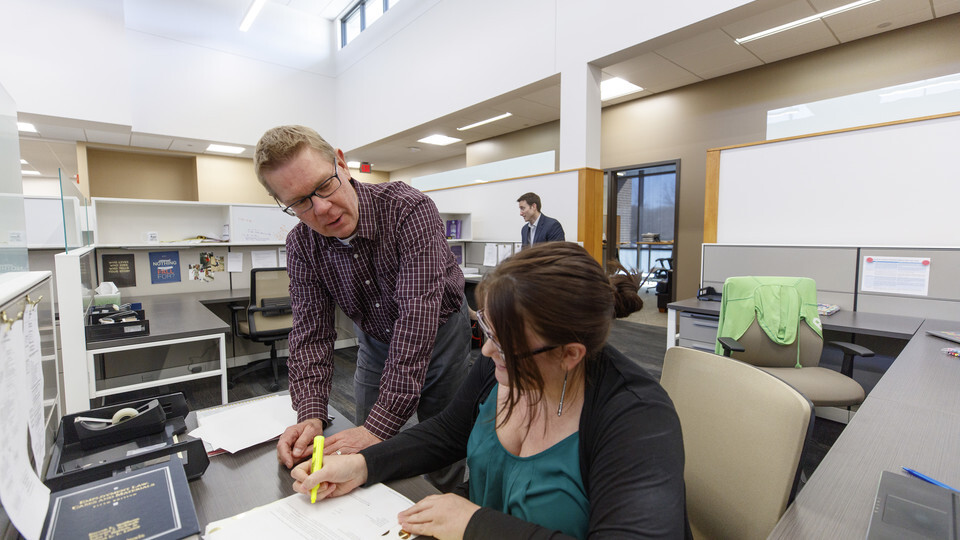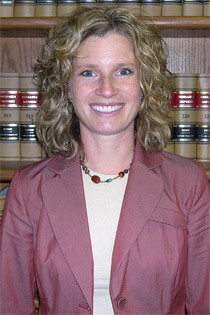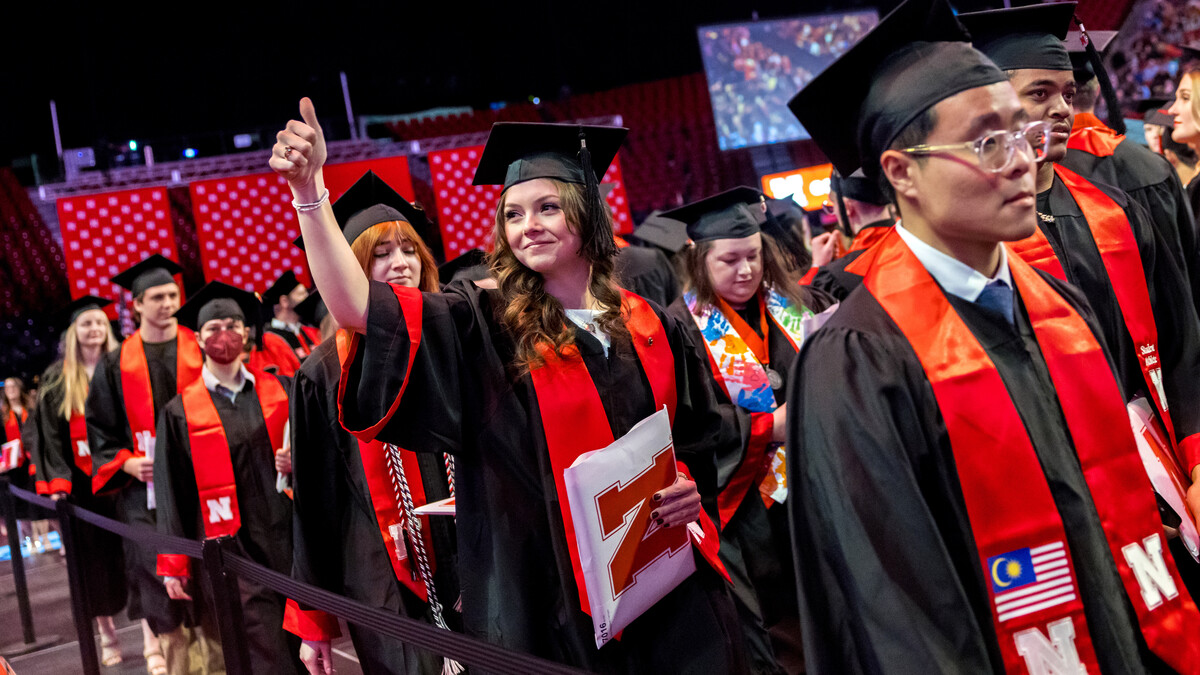
The University of Nebraska College of Law is adding a fifth legal clinic: The Children’s Justice Clinic.
Third-year law students in the clinic will have the opportunity to serve as a guardian ad litem for children in the child welfare system. The newest of Nebraska Law’s clinics results from a partnership between the college and the university’s Center on Children, Families and the Law.
The inaugural Children’s Justice Clinic course will have eight students at the start of the fall semester and will be located in the college’s recently opened Marvin and Virginia Schmid Clinic Building.
“We are thrilled to add the Children’s Justice Clinic to our clinical offering,” said Richard Moberly, dean of Nebraska Law. “The work that our students will do in the clinic will affect generations of Nebraskans and ensure that the state’s youngest residents receive high quality representation in the juvenile court system.”
In addition to providing practical skills training to law students, the clinic will help address the state’s need for qualified guardians ad litem, or GALs. A 2009 study by the National Association of Counsel for Children found numerous gaps in the representation of children in the state, concluding that though GALs in Nebraska may have competent skills in court, they would be well-served by additional training in child development, family dynamics and dysfunction, and the utilization of multidisciplinary experts for consultation to provide effective service for children they represent.
The new clinic will provide that wide-ranging, cross-disciplinary training through working closely with experts at the Center on Children, Families and the Law.
“The GAL is critical in a juvenile court case. In Lancaster County, we need more attorneys not only willing to serve as a GAL, but able to implement best practices to effectively advocate for children,” said Judge Roger Heideman, presiding juvenile court judge for the Separate Juvenile Court of Lancaster County. “Advocating for very young children presents a unique challenge that requires a special skill set.”
Foundational training for Children’s Justice Clinic students will focus on courtroom skills, federal and state child welfare laws, the child welfare process, child development and trauma in young children. Students also will train in areas such as drug and substance abuse and mental health.

Michelle Paxton, director of legal training at the university’s Center for Children, Families and the Law, will be an adjunct law professor and supervise Children’s Justice Clinic students. A multidisciplinary team of psychologists, child welfare practitioners from the Center on Children, Families and the Law, social workers and mental health practitioners also will help students on clinic cases.
The initial funding for the Children’s Justice Clinic came from private donations, and additional permanent funds are still being raised through the University of Nebraska Foundation. It joins the Civil Clinic, Criminal Clinic, Immigration Clinic and Weibling Entrepreneurship Clinic at Nebraska Law in giving students hands-on experience serving real-world clients.







